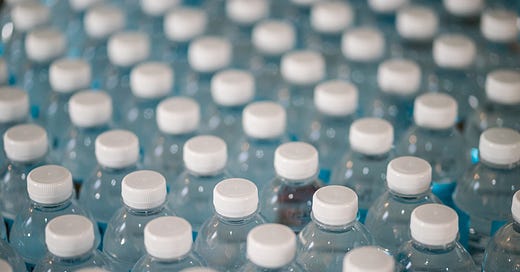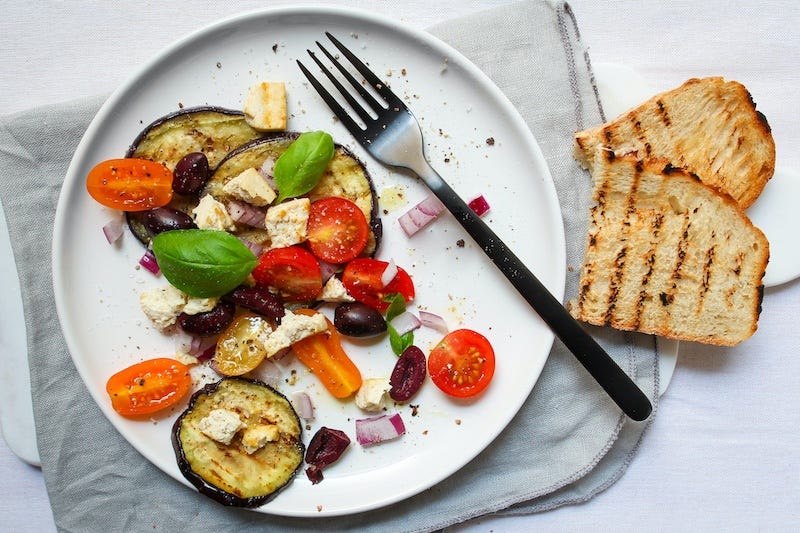No, You Don't Need to Drink More Water
Eight glasses a day is a cultural preference, not a scientific fact.
No one knows exactly where the advice to drink eight glasses of water a day originated. One possible origin is a 1945 publication from the Food and Nutrition Board of the National Research Council, which called 2.5 liters of water "a suitable allowance of water for adults." But the authors also noted, "Most of this quantity is contained in prepared foods," which is definitely not how the advice is communicated today.
Another possible origin story lies in the personal beliefs of an influential nutritionist named Fredrick J. Stare, who founded the Department of Nutrition at Harvard School of Public Health in the 1940s. Stare's belief in drinking at least six glasses of water a day was apparently important enough to be mentioned in his obituary, but it was not based on scientific evidence; it was just how he lived his life. In a 1974 book co-authored with Dr. Margaret McWilliams, they wrote:
How much water each day? This is usually well regulated by various physiological mechanisms, but for the average adult, somewhere around 6 to 8 glasses per 24 hours and this can be in the form of coffee, tea, milk, soft drinks, beer, etc. Fruits and vegetables are also good sources of water.1
Again, it is notable that this advice is quite different from what we are told today. They say at least six glasses, not eight, and include beverages like coffee, tea, and beer, which American nutrition advice usually dismiss as "dehydrating." They also mention that we can get water from the food we eat.
If you or your family comes from a culture outside the US, or you have traveled extensively outside the country, you probably already know: Americans are weird about water. We're weird about water, yet we are convinced our belief in maximum hydration as a key to health is based on science, and therefore objectively correct. When the truth is, it is neither. It's just a cultural preference, and that's how we should treat it.
It began to dawn on me that water was not a magical health elixir when I moved to Japan in 2005. Back home at the time, bottled water was the second most popular commercial drink, with US per-capita consumption over 26 gallons per year. (It became number one in 2017, and remains so today.) In Japan, I mostly saw people drinking cups and cups of green tea all day at work. At restaurants, I didn't sit down to giant glasses of ice water. Water was around, and sometimes people drank it, but as far as I could tell, it was not the gold standard beverage, or the only "right" way to hydrate yourself.
My mother, a white American who grew up in Thailand and India, had been telling me for years that the "eight glasses of water a day" advice was BS, but most of that time, I was like, "WHATEVER, MOM" while dyeing my hair with hot-pink Manic Panic and sneaking into music venues with a fake ID. Little did I know my mom's resistance to the hydration thought police — born out of real-life experiences in less water-obsessed cultures — was right.
Traditionally, humans receive a lot of hydration from the foods they eat. In Thailand, for example, a brothy soup is customarily part of a meal, and is sipped throughout eating, providing moisture that helps with chewing and swallowing, as well as hydration. Fruits and vegetables contain a lot of water, as do foods like meat, fish, tofu, and eggs.
And the beverages that supposedly don't count, like coffee, caffeinated tea, and beer? They do indeed hydrate. A review of studies looking at caffeine ingestion and fluid balance found that a tolerance to the diuretic effect of caffeine builds up over time, so if you are regularly consuming, say, two cups of coffee every morning, drinking caffeine in moderate amounts (not hyper-caffeinated energy drink amounts) will not dehydrate you.2 Beer has more mixed results, but this study clearly conceived of by a group of marathon-running, craft-brew-loving buddies concludes:
After exercise and subsequent water losses, a moderate beer (regular) intake has no deleterious effects on markers of hydration in active individuals.3
So if you count the water in the food you eat, and count the caffeinated beverages you drink during the day, and maybe even that after-work beer, and you don't have a medical condition that affects hydration status, and you don't feel thirsty right now…you are probably fine.4
Of course, there is nothing wrong with drinking lots of water, or carrying around an emotional support water bottle. (I became attached to mine after moving to dry dry Denver.) But you don't need to force yourself to drink more water by buying water-flavoring packets and mixing up a WaterTok recipe or buying a water reminder app, or buying a gigantic, TikTok-famous tumbler.5 More water won't give you perfect skin, or more energy, or cure your digestive woes. Water is just…water. It's not magic.
(And isn't it interesting that, in a country with so much clean, drinkable, and free tap water, we've still found a way to sell people so many products related to drinking water?)
It's like the Mediterranean diet.6 There is nothing wrong with following it, but you don't need to eat in that one specific way in order to thrive. Drinking eight glasses of water a day is a cultural preference, and one that may not feel right to you. That’s fine! Enjoy your coffee or fruit or whatever else is hydrating you — and also enjoy all the extra time you have because you aren't peeing 20 times a day.
Valtin, H. (2002). “Drink at least eight glasses of water a day.” Really? Is there scientific evidence for “8 × 8”? American Journal of Physiology-Regulatory, Integrative and Comparative Physiology, 283(5), R993–R1004. Read the full article here.
Maughan, R. J., & Griffin, J. (2003). Caffeine ingestion and fluid balance: A review. Journal of Human Nutrition and Dietetics, 16(6), 411–420.
Jiménez-Pavón, D., Cervantes-Borunda, M. S., Díaz, L. E., Marcos, A., & Castillo, M. J. (2015). Effects of a moderate intake of beer on markers of hydration after exercise in the heat: A crossover study. Journal of the International Society of Sports Nutrition, 12(1), 26. Read the full article here.
Obvious disclaimer: This is not intended to be a substitute for professional medical advice, diagnosis or treatment. Please seek the advice of a qualified healthcare provider if you have any concerns about your fluid intake or hydration status.
Although my friend recently got one and cannot stop raving about it, so it may live up to the hype.
More on the Mediterranean diet:
The Mediterranean Diet Is a Whitewashed Fantasy
It's a new year, and time for the annual pushing of the Mediterranean Diet. "The Mediterranean Diet Really Is That Good for You. Here’s Why," proclaimed the New York Times a couple weeks ago. “It’s one of a small number of diets that has research to back it up,” said Dr. Sean Heffron, a preventive cardiologist at NYU La…







Wow, I get to be right?! Mom xo
Sometimes I wonder how many of the rules we hear around "health" would disappear if nobody could make money from them?